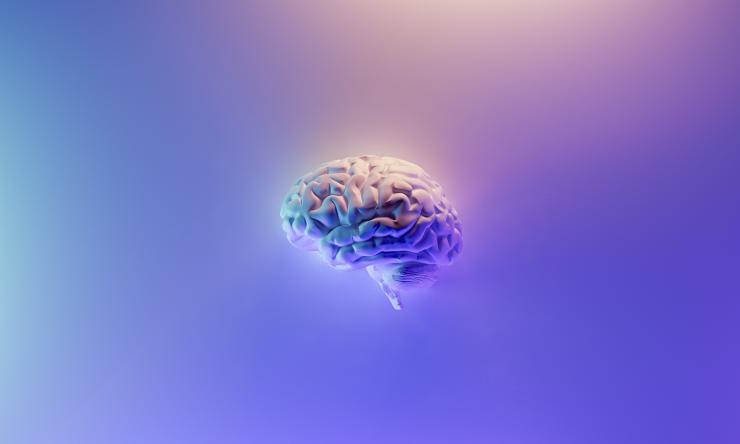CAR T cell therapy for pediatric brain cancer warrants further study
Novel therapeutic approaches are needed for children with diffuse midline glioma (DMG) and other recurrent high-grade central nervous system (CNS) tumors, aggressive brain cancers with poor prognoses. A type of immunotherapy using T cells modified with chimeric antigen receptors (CAR T) has demonstrated efficacy in other cancers, but use in DMG and other CNS tumors has been limited.
Researchers at Texas Children’s Cancer Center and the Center for Cell and Gene Therapy at Baylor College of Medicine, Texas Children’s Hospital and Houston Methodist Hospital developed an augmented CAR T cell therapy targeting the GD2 antigen, which is highly expressed in DMG and other CNS tumors. The therapy was well tolerated in a phase 1 trial (NCT04099797) at Texas Children’s Cancer Center; some patients showed temporary improvement of tumor-associated neurological deficits, warranting further investigation of this novel therapy. The results are published in the Journal of Clinical Oncology.
“Brain tumors are very immunosuppressive and effective at turning CAR T cells off. We aimed to overcome that challenge by modifying the GD2 CAR T cells with a receptor called C7R,” said senior author Dr. Bilal Omer, associate professor of pediatrics – hematology and oncology at Baylor, member of the Center for Cell and Gene Therapy and oncologist at Texas Children’s Cancer Center. “This study shows that this therapy can effectively get to the tumor, and the addition of C7R safely augments antitumor activity.”
All patients received standard-of-care radiation therapy or chemotherapy prior to study enrollment. The first cohort received therapy targeting GD2 alone; patients in this group did not experience major side effects, but cancer progressed after a brief improvement of neurological symptoms. Later cohorts received therapy enhanced with C7R, developed in Dr. Cliona Rooney’s lab at the Center for Cell and Gene Therapy. Patients in this group experienced more initial side effects but also longer temporary improvement of neurological deficits, with a median improvement time of five months. A partial response was observed in two out of seven patients with DMG. One of these patients had a persistent response that is ongoing after more than two years.
“Seeing a signal from therapies for patients with these tumors is impactful and tells us we need to keep working in this direction,” said first author Dr. Frank Lin, assistant professor of pediatrics – hematology and oncology at Baylor and neurooncologist at Texas Children’s Cancer Center. “We benefit from the shared expertise of our multidisciplinary team to explore a cutting-edge therapy, with the goal of addressing a major unmet need for children with CNS cancers.”
In the next arm of the study, researchers will examine whether the way the therapy is delivered, intravenously or directly into the spinal fluid, can impact the response to treatment. They also will study why some patients respond to treatment better and how the response to treatment time can be extended for all patients. Learn more about the study and how to join here.
Omer and Lin are members of the Dan L Duncan Comprehensive Cancer Center at Baylor. Other authors of this work include Austin Stuckert, Candise Tat, Mark White, Lucia Ruggieri, Huimin Zhang, Birju Mehta, Natalia Lapteva, Zhuyong Mei, Angela Major, Sachin Thakkar, Thomas Shum, Kathan Parikh, Meng-Fen Wu, Holly B Lindsay, Lauren Scherer, Meghan Shekar, Patricia Baxter, Tao Wang, Bambi Grilley, Karen Moeller, John Hicks, Angshumoy Roy, Jamie Anastas, Fatema Malbari, Guillermo Aldave, Murali Chintagumpala, Susan Blaney, D. Williams Parsons, Malcolm K. Brenner, Helen E. Heslop and Cliona M. Rooney. They are affiliated with one or more of the following institutions: Baylor College of Medicine; Texas Children’s Cancer Center; the Center for Cell and Gene Therapy at Baylor, Texas Children’s and Houston Methodist; the Dan L Duncan Comprehensive Cancer Center and the University of Colorado Anschutz Medical Campus.
Funding for this work comes from the Cancer Prevention and Research Institute of Texas (RP190067, RP180785), The Faris Foundation, Chance for Hope Foundation, ChadTough Defeat DIPG Foundation, Violet Foundation for Pediatric Brain Cancer and the National Institutes of Health (K12CA090433). The authors express their gratitude for the collaboration with Southern Star Medical Research Institute through its joint tumor research program with Texas Children’s Hospital. The team also used shared resources of NIH Cancer Center support grant P30CA125123.










